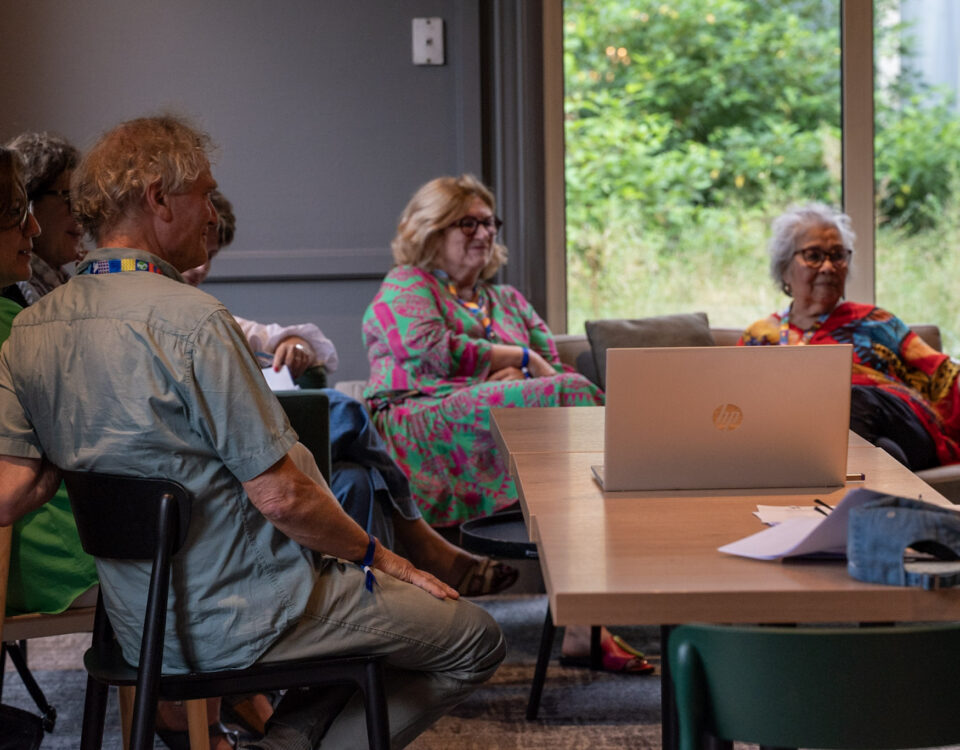
CISV in reality
November 21, 2019
10 things Junior Branch did in 2019
December 22, 2019As a volunteer-led organization, we rely on the contributions of our international teams. Each year, we work with the Standing Committees of the Governing Board:
- Chapter Development,
- Educational Programmes,
- Training and Quality Assurance,
- and Resources and Infrastructure.
36 individual Volunteers, Senior Staff, and Trustees bring our committees to life, focusing on the strategic development of their focus areas, providing our National Associations and Chapters with resources, and supporting the work of the Governing Board.
We asked our committees to give us recommendations related to the work they do that CISVers can use as we prepare ourselves for 2020.
Strategic Planning in your National Association or Chapter
National Associations and Chapters are very good at planning programmes and annual work plans but longer-term planning is something we all find more challenging. The Strategic Planning Guide is a practical step-by-step guide to lead National Associations and Chapter Boards through a strategic planning process. This very much relates to the wider work of Chapter Development this year: implementing a new framework for Chapter Development which is focusing on supporting our established National Associations, while still developing Promotional Associations.
Want to host more but don’t have the resources to do so?
Our Members have told us that they are struggling with resources to host programme, so bringing together resources from two National or Promotional Associations can overcome this challenge – this is co-hosting. This has become more and more popular over the last few years and has had an impact on the number of programmes we can host globally as an organization. Again this is a practical tool for our members to guide them through the process of finding and working with a co-hosting partner and understanding the benefits of co-hosting.
Volunteer Management: a new guide
The Resources and Infrastructure and Chapter Development Committees have come together to create and share a new Guide to Volunteer Recruitment and Retention. Our Chapters have told us that they struggle with volunteer capacity so we decided to share some good practice around volunteer recruitment, orientation, engagement, retention, and overall volunteer management.
Resources and tools that protect data and privacy
We have a standing commitment for the protection of data of our members, participants, volunteers, and everyone in CISV! That means that the online tools we use to send newsletters, to create forms, to manage our emails, or as a database for the programme your Chapter might be hosting, and all other online tools or resources we use in our CISV work must be compliant with relevant data protection regulations. The Privacy Shield List is composed of companies certified under certain Privacy Shield Agreements and it regulates how companies deal with data so that they qualify with data protection laws. While being in the list doesn’t mean everything that this company does is compliant, it gives an indicator whether sharing our personal data with the company could somewhat be allowed under our data protection laws or not. If your Chapter is thinking on creating a newsletter, or a sign-up form for a local activity, checking the Privacy Shield List can give you guidance if the service and company you will be using protects data, the way CISV should.
Why are we volunteers?
“As the world warms, as inequality widens and as an increasing number of societies suffer from instability and conflict, many people are left wondering what they can do about it.
As inspirational changemakers like Greta Thunberg show, you don’t have to start out as a world leader or a celebrity to make a difference. Standing in the street with a protest sign is not for everyone, though. And there are many ways to make a difference.” Achim Steiner (UNDP Administrator) & Olivier Adam (Executive Coordinator, United Nations Volunteers (UNV) programme)
If you’re a CISVer, this article will give you the motivation you need. By highlighting the importance and the impact of volunteerism, the United Nations will give you the inspiration to keep educating and inspiring for a more just and peaceful world. There are millions of volunteers around the world working for different causes. Thank you for devoting your time and expertise to CISV.
Resources, one click away.
The Training and Quality Assurance Committee works to deliver quality content to provide training in your Chapter, your National Association, or your region. Resources with training materials are available for everyone in CISV and are a good option if you cannot attend international training next year. In our resources section, you can find tools to develop quality training in your Chapter and National Associations.
Searching for research
2019 came with a lot of policies being updated and improved work on research projects. We realized that sometimes we need to expand on our resources and base our documents on concepts from academia. This is important considering that in CISV, volunteers have different expertise which brings interesting perspectives to discussions. In this article on The 5 Best Tools for Researchers you can find tools that will help you do organized research on the topics you might need in your Chapter – whether they are related to educational content or organizational development.
Annual Notes for Programme Trainers Everywhere
Every year, the Educational Programmes Committee provide guidance and pointers to programme trainers in the form of ‘Trainer Notes’. These notes are based on the Programme Director’s Planning and Evaluation Form (commonly known as PDPEF) evaluation data, issues report, and observations from the Educational Programmes Regional Delivery Teams. You can find Improving Educational Quality in Programmes – Trainer Notes 2019 at Planning a Training. Look out for the Trainer Notes 2020 around February/March 2020.
New Mental Health Guide
We put together a group of volunteers to work on resources that would allow us to take better care of people with Mental Health concerns. Mental health includes emotional, psychological, and social well-being. It affects how we think, feel, and act. It also helps determine how we handle stress, relate to others, and make choices. Mental health is important at every stage of life, from childhood and adolescence through adulthood. In our programmes, it is as important for educational experiences as physical health or wellbeing. Together with an update on our Health Forms, a basic Mental Health Guide was finalized and published this year.




